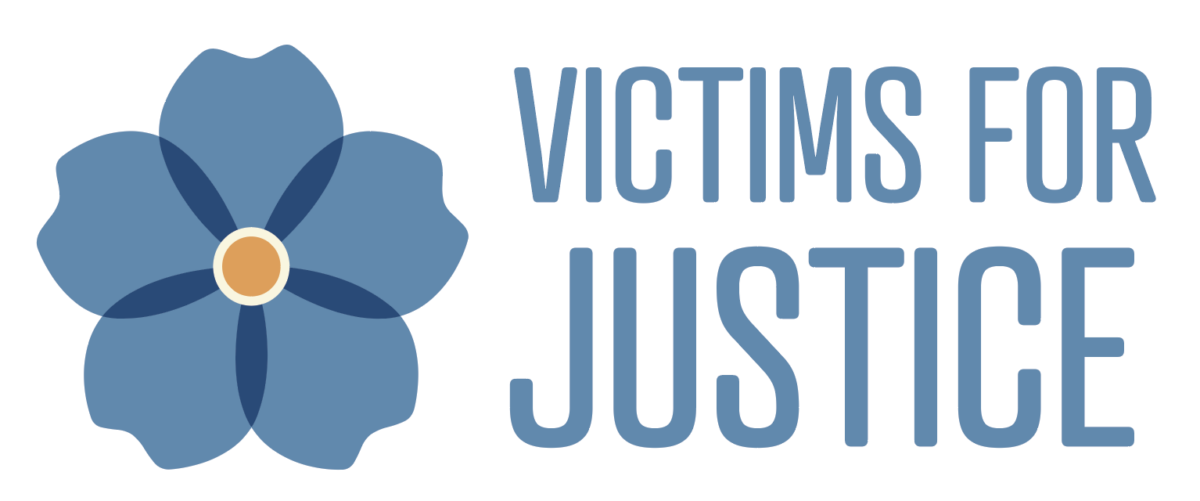As COVID-19 cases increase in Alaska, courts have again suspended jury trials through the end of August. In Anchorage, they’re on hold until at least August 27, 2020. A list of locations and dates of suspension is here.
Given the backlog in court cases since the pandemic began, Victims for Justice decided to check in with Anchorage District Attorney Brittany Dunlop about the impact on victims of violent crime.
Q: How backed-up are courts in Anchorage these days compared to pre-COVID times?
A: How backed up are Anchorage courts is a difficult question. Many hearings have been taking place throughout the pandemic. We have been charging cases in a normal fashion, as they are arrested or referred from police agencies and attending their initial arraignments. With some interruptions due to court closures, we have been routinely presenting cases to the grand jury. We have also been handling other regular pre-trial hearings initially telephonically, and finally more recently in person. In context, the vast majority of our cases resolve by plea agreement, not by trial. In 2019 we filed roughly 3500 felony cases in Anchorage. About 1500 were indicted by the grand jury. Only 100 or so saw a jury trial. So, halting jury trials in theory should not impact our day-to-day work that much. However, the prospect or threat of jury trial is often what induces plea agreements. Throughout the pandemic defense lawyers have had a difficult time communicating with their clients to relay plea offers. Many more defendants than normal are out of custody due to COVID concerns prompting release by the court, and for those that were in custody, the jails necessarily had tight COVID restrictions on visitation. Those complications, coupled with the halting of jury trials, means that we have not seen the level of plea agreements that we normally would see, leading to a fairly substantial backlog.
Numerous orders have been issued since March of 2020. Those orders affect everything from the tolling of speedy trial rights, to the suspension of trials, and the regulation of health and safety procedures within the court system. Some of the orders have come from the Supreme Court, others from the local presiding judge. They can all be found on the court system’s website.
Q: How are these delays affecting victims of violent crime in terms of their ability to access justice?
A: Cases are not resolving at the same rate we would normally see, either through plea agreement or trial. This can be frustrating for all parties, especially victims and witnesses who are looking for closure to traumatic events. Victims should feel empowered to call in to court and appear telephonically for any hearing that they wish so they can be kept appraised of what developments are occurring in their case. Victims can exercise their rights to be heard on bail, delays and sentencing telephonically.
Q: If someone loses a family member to homicide in Anchorage, how long on average would it take from the time of the crime until the matter goes to trial? How has this time frame changed since the pandemic? What about for other violent crimes (e.g. assault, arson, hit and runs, etc.)
A: By a rough estimate I would say that homicides or serious violent crimes normally resolve by plea agreement 9-18 months after an event. If a plea agreement can’t be reached, and a case is going to go to trial, that timeframe can be longer, generally 1-3 years. Many factors can impact how long it takes to get a case to trial. Those factors include the complexity of the case, the degree of pre-trial litigation, the number of co-defendants, or whether the defendant changes counsel partway through the proceedings. Without trials for over a year, some delay can necessarily be expected. However, I am hopeful that the court will prioritize more serious offenses for trial going forward, and that counsel has been working diligently on pre-trial matters throughout the pandemic so the delay is not extreme.
Q: What are you telling victims about the court delays in terms of what they can expect?
A: We are asking people to be patient. While getting cases to trial in a timely manner is definitely a priority, we are also prioritizing the health and safety of parties, witnesses, jurors and everyone else involved in the court process. There are a number of legal challenges that exist in trying a case during a pandemic. For example, things that seem as simple as whether witnesses are required to wear masks, or if the courtroom is closed to in person spectators could pose legal challenges to a case down the road. After all, a juror has to be able to evaluate the credibility of witnesses, which includes seeing their facial expressions, and a defendant has a constitutional right to a public proceeding. So, simple or obvious solutions to getting court back up and running full speed have potential to jeopardize a case in the future.
I would emphasize to any case parties, that while the delay is certainly frustrating, it is our utmost priority to make sure that when we obtain convictions, it is done so in a constitutionally valid manner, that will withstand future appellate review. It is all a balancing act, so we are asking for grace as we try and get the best result possible for the safety of the community. Victims should know that we are doing our very best to move cases, prioritizing those that are the most serious and have unique timing or other issues. As soon as the court opened for trial, we immediately scheduled and completed a dozen trials, which was as many as the court could accommodate. We started with some class B and C felonies, because that was what the initial court order permitted, but were also able to try one sexual assault case. We are hopeful that we will try more serious cases soon. Many of the scheduling issues are out of our hands, and we are responding as best as we can to new court orders as they are issued.
Q: Are other aspects of your work being affected by the pandemic?
A: The District Attorney’s Office has been affected in a similar manner to many professional offices. Unlike restaurants, bars or other businesses that were shuttered completely, we were able to continue our work, just in a modified fashion. Because new cases continued to need to be charged daily, we quickly adapted to minimize the number of people physically in the office, transitioning to telework for what could be done remotely. Court hearings happened throughout the pandemic telephonically and by videoconference. For the past several months we have had the vast majority of our employees physically back in the office, in a “business-as-usual” type mode, but are eager for things at the court system to return to in person as soon as safely possible.
Q: Is there anything else you would like to share with our readers?
A: Please don’t hesitate to call our office if you have specific questions about your case, 907-269-6300. Our mission remains to seek justice and promote public safety through every case that comes before our office. We are always happy to answer questions or take input from victims and witnesses regarding their cases.


Recent Comments